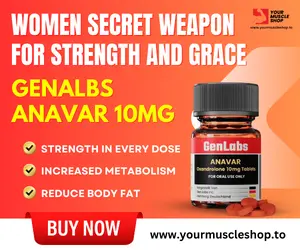If you’re following a gluten-free, vegan, Paleo, or low-carb diet, listen up: You may be putting yourself at risk for potentially dangerous nutritional deficiencies.
“Cutting out major food groups increases the risk of vitamin and mineral deficiencies,” explains Lisa Moskovitz, R.D., founder of The NY Nutrition Group. “When the body doesn’t get the nutrients it needs, immunity and bone density can be compromised and the risk of cancer and nerve damage can increase.” Scary stuff!
The good news is you can still stick to your diet without putting yourself in danger. Here, Moskovitz explains how.
GONE VEGGO
Potential Deficiencies: Without careful planning, cutting out all animal products greatly decreases the amounts of B12, zinc, iron, iodine, omega-3s, and protein you’ll get from your diet.
The Risks: “Over time, if you don’t get enough of these nutrients, you increase the odds of breaking down muscle tissue and developing anemia, nerve damage or thyroid cancer,” explains Moskovitz.
The Safeguard: Ward off B12 deficiencies by eating a bowl of fortified cereal each day. Serve with 2 tablespoons of flaxseed or 1/4 cup walnuts to hit the daily recommended intake of omega-3s and get a healthy dose of zinc, too. Incorporate navy beans and sea vegetables, like dulse and nori, into your diet for a boost of protein and iodine. Fight iron deficiencies with lentils, spinach, and chickpeas, suggests Moskovitz.
PALEO,
Potential Deficiencies: The Paleo diet doesn’t include dairy, one of the best sources of riboflavin (vitamin B2), bone-protecting calcium, and vitamin D, which makes followers susceptible to these nutrient deficiencies later in life.
The Risks: Cheilosis, a condition that causes cracks on the outside of the lips, is a common sign of riboflavin deficiency and research has found a strong association between vitamin D deficiencies and dementia, heart attack, and stroke. Falling short of the daily recommended dose of calcium increases the risk of osteoporosis, depression, rickets, tooth decay, and insomnia, warns Moskovitz.
The Safeguard: Moskovitz’s Paleo-approved smoothie recipe is great way to help you hit all of your nutritional marks. Here’s how to make it: In a blender, combine 1 cup of calcium- and vitamin D-fortified almond milk with half of a large banana, 3/4 cups spinach and 1/4 cup almond butter. Puree until smooth. “Be sure to also eat other riboflavin-rich foods, like lean beef, turkey, almonds, mushrooms, broccoli, eggs, and asparagus. Salmon and soybeans are also great sources of calcium and vitamin D,” adds Moskovitz.
GLUTEN FREE
The Risks: “When a diet lacks fibre, it raises the risk of weight gain, diabetes, heart disease, and cancer. It can also make you constipated and tired,” warns Moskovitz. “Not getting enough folate is also dangerous and can lead to anemia, fatigue, and can even make you sprout gray hair.” Eek!
The Safeguard: Most gluten-free breads and cereals are not enriched with folate and aren’t the best sources of whole grains. Instead, eat lentils, beans, quinoa, amaranth, spinach, strawberries, and broccoli, which are all rich in folate and fiber.
LOW CARB
Potential Deficiencies: Guys following Atkins, South Beach, and other low-carb diets are at risk of becoming deficient in fiber, B vitamins, antioxidants, and phytochemicals such as beta carotene, vitamin C, folate, and vitamin E, warns Moskovitz.
The Risks: Not getting enough of these nutrients can make you moody and tired, and may also increase the likelihood of getting cancer, heart disease, diabetes, and high blood pressure.
The Safeguard: “To hit your nutritional marks, take a multivitamin and avoid staying in carb-restrictive phases for too long. It’s also important to eat plenty of Atkins-friendly nuts, seeds, and vegetables (like lettuce, spinach, Swiss chard, asparagus, cauliflower, broccoli and mushrooms, and avocado), to boost your nutrient intake,” advises Moskovitz.
http://www.mensfitnessmagazine.com.au/2014/09/4187/



